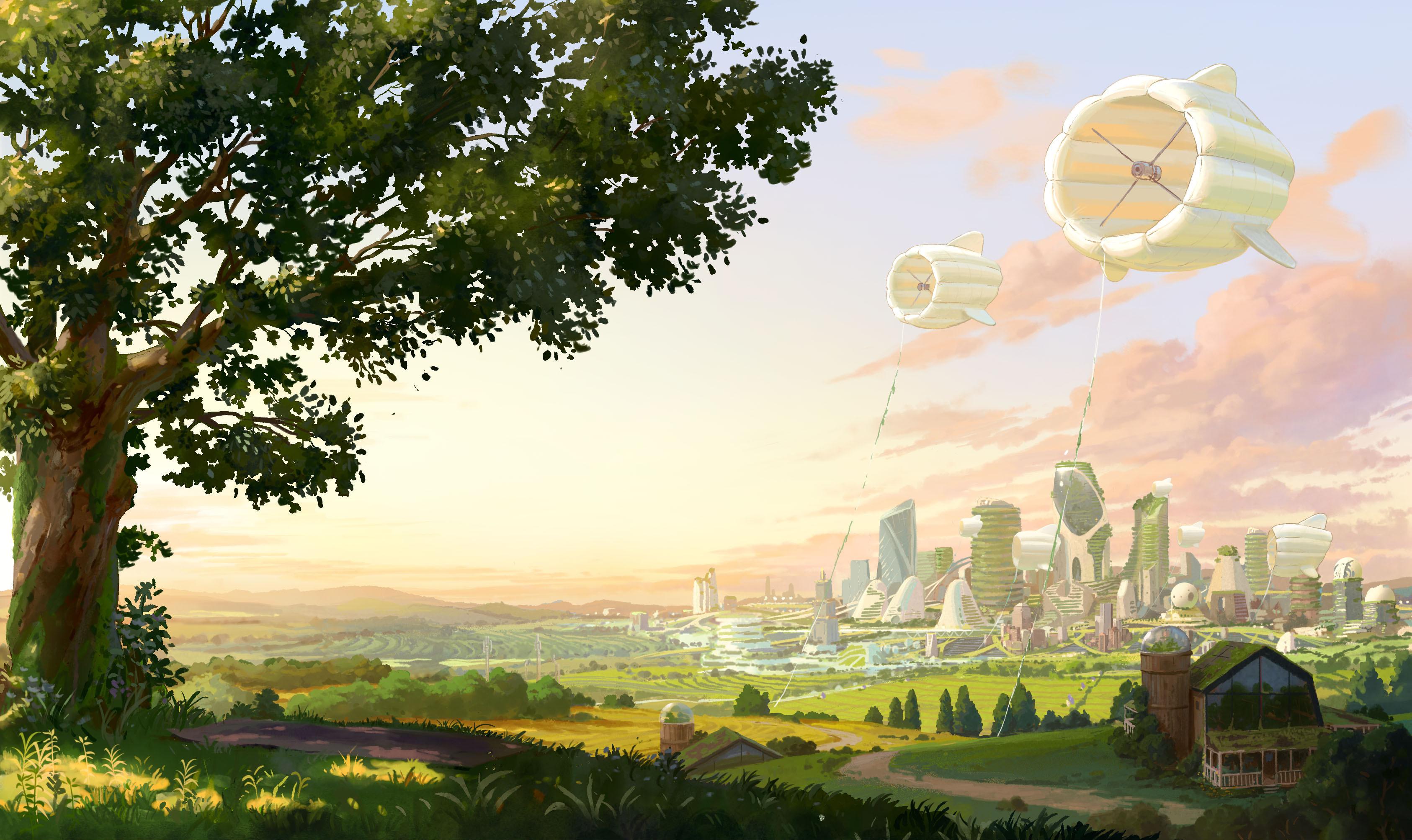The Fermi paradox is the idea that based on the number of stars in the universe, each's probability of having a habitable planet, each of those planets' odds of developing life, and so on; statistically it's virtually certain some other civilization has become obscenely advanced, far beyond our own.
If such a civilization exists we should have heard from them by now, but we haven't. That's the paradox.
The Great Filter is one solution to this paradox. It proposes that some big bad event inevitably happens in the course of any developing civilization that dooms it, and it's the same event or events for every civilization.
Usually, ideas for possible Great Filters are dramatic and looming like nuclear war, climate change, hyperintelligent AI, plague, or exhaustion of resources.
I'd like to propose some more wholesome alternatives, each a little more unhinged than the last.
Stopped Having "Happy Accidents"
When speaking about populations, replacement is when the average person produces 1.0 children. Mathematically replacement is vital to the continuation of any species. An average production of even 0.9 children per person means each generation is smaller than the last, until there is simply no next generation.
We already know that as populations develop, birth rates decline. Contraceptives, family planning, education, individual freedoms, and opportunity all work together to create more thoughtful and intentional reproduction.
Historically, reaching replacement has been easy. It has had to be. Sex is fun, and sex makes children, so children get made.
But as we approach a world that disconnects recreational sex from conception, it's possible we won't reach replacement. It's possible we won't even get close. How many couples do you know who plan to have 3+ children?
Perhaps the largest human generation ever to exist already does. It will be a fantastic thing for each individual to lead their life how they want. It might also end the species. Lack of reproductive freedom is one of the more sinister evolutionary necessities. Perhaps once a species advances enough to fix it, it's the beginning of the end.
Perhaps countless civilizations have already gone through this.
Purposefully Stopped Inventing
Humans are unique on the planet for two reasons. First, we’re toolmakers. Second, we pine for more. More everything. The richest and most accomplished among us still want more. This carnal desire has brought us far evolutionarily, intellectually, and economically.
This desire for excess is probably a prerequisite for any species to become advanced. But perhaps that desire eventually causes enough planet-scale issues that it forces the realization that it can be overcome.
A small problem is ignorable and a medium problem is annoying, but a big problem is fixed.
Maybe we’ll reach some philosophical understanding of the universe and our own nature that shuts down that desire for excess, that makes every human being happy and healthy but doesn't also advance science, or at least spacefaring science.
If so, civilizations that have those two properties necessary for growth are stopped from growing by those very same properties' eventual destructive tendencies.
Once overcome, perhaps we'll stop extraplanetary operations and live out our lives on the planet we grew up on, solarpunk style.
Perhaps countless of civilizations are currently doing this.

Stunted by our Carrier
We're only starting to understand the complexity of the gut biome. It is an entire colony of bacteria—a civilization—that operates inside us in symbiosis.
The bacteria in the biome probably don't know that their world is inside a person, who lives in an even larger world.
Maybe we're in someone else's gut biome. In the same way a bacterium doesn't have concepts for a coffee table or a planet, we could be missing concepts much larger than us—outside the visible universe, maybe—that influence our world or galaxy or universe the same way our bodies influence our gut biomes.
Maybe that larger being has some defense mechanism—like we have white blood cells—that prevents civilizations from getting into a bad state, and intersolar operations are a bad state.
Perhaps countless civilizations have already gone through this.
Left
Maybe every civilization advanced to the point where they found a way out. Out of our universe, or our of our spatial or temporal dimensions. Maybe they discovered time travel and there’s some reason they really wanted to use it, so they time traveled their entire civilization far into the future, like past the heat death of the universe.
Maybe that’s what dark energy is—planets or star systems or galaxies that are time traveling from the past into the future, pulling the metaphorical fabric of spacetime up instead of weighing it down.
Perhaps countless civilizations will meet each other on the other side.
#nofilter
Maybe everything is perfect and many extraterrestrial civilizations exist just fine, just not in ways we can perceive, and maybe they equally cannot perceive us. Maybe they are what dark matter is.
Maybe there are entire empires spread across the galaxies thriving, but they somehow exist and have always existed in a perceptual level of the universe we don’t even know about, like how my dog doesn't know about wifi.
Perhaps countless civilizations are out there, existing among us.
Would It Be Bad to be Filtered?
Some of these Great Filters would actually be advancements. It would be great to reach fully reproductive freedom, or to re-achieve symbiosis with the resources available to us.
It pulls at me, though, that in these scenarios the species will stop existing, because I really want us to continue existing. I'm a curious person. I'm so curious, that even after I'm dead I want others to uncover all my unsatisfied curiosities of physics and the universe, even if I won't be around to be curious about them anymore.
But that's not my choice to make. If everyone alive is happy, and our species dwindles into nothingness because of it… is that bad?
Maybe countless civilizations have already gone through it.